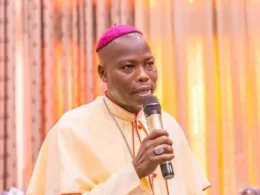A Ghanaian high court has blocked a planned youth-led protest, scheduled from July 31 to August 6, aimed at addressing corruption, economic hardship, and the president’s failure to sign a controversial anti-LGBTQ bill into law.
The demonstration , tagged “The Gen-Z demo,” was organized by a combined team of civil society and pressure groups. Inspired by similar movements in Kenya and Uganda, the organizers aimed to pressure President Nana Akufo-Addo’s government to address issues such as the depreciating cedi currency and soaring living costs.
High court judge Mary Yanzuh issued the ruling following a police application to prohibit the event. Police prosecutor Sylvester Asare argued that the extended duration of the protest posed significant security and logistical challenges.
“Providing adequate security for the proposed number of days would severely strain our capabilities, especially in this election year with other political activities taking place,” Asare told AFP.
Organizers expressed deep disappointment with the court’s decision. Bernard Mornah, one of the protest organizers, said, “This protest was a chance for the youth to voice their frustrations and demand accountability. Blocking this demonstration silences our calls for change and undermines our democratic rights.”
Ebenezer Havor, a convener of the demonstration, also expressed frustration, stating, “Our intention was to call on the president and his team to implement measures to fix the economy, tackle corruption, and show their commitment to the Sexual and Ghanaian Family Values Bill.”
The bill, which severely restricts LGBTQ rights, was passed by Ghana’s parliament in February but has yet to be signed into law by the president. While activists have condemned the bill, it enjoys widespread support in Ghana, where a recent supreme court ruling upheld a law criminalizing gay sex.
The protest cancellation comes amid ongoing economic challenges in Ghana. Despite a slight easing of inflation to 22.8 percent in June 2024, it remains well above the central bank’s target band of 6-10 percent.
The country, a major gold producer and cocoa exporter, has been struggling with external debt servicing since 2022, leading to a $3 billion debt relief agreement with the International Monetary Fund.
The latest Afrobarometer report highlights growing dissatisfaction with democratic institutions and leadership across Africa. While young people support democratic principles, they are increasingly disillusioned with their leaders’ ability to deliver tangible benefits.
Despite the setback, pressure groups remain undeterred. “Our voices will not be silenced,” Mornah asserted. “We will find new ways to demand the change that Ghana needs.”










Join our Channel...